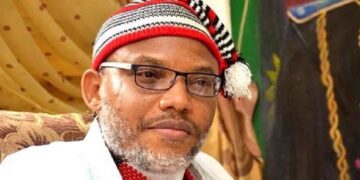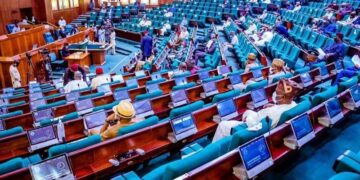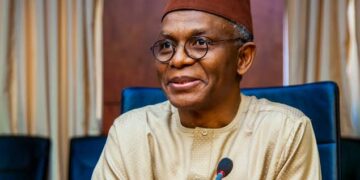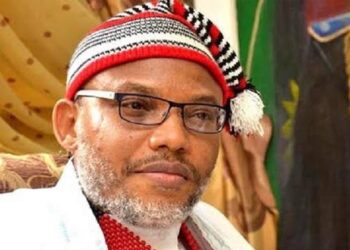The Independent Corrupt Practices and Other Related Offences Commission (ICPC), says they have intensified moves to recover assets outside Africa that are perceived to be proceeds of crime.
Chairman of ICPC, Dr Musa Aliyu, said this in Abuja, at a one-day stakeholders engagement on the assessment of Nigeria’s asset recovery regime.
The event was organised by the Centre for Fiscal Transparency and Public Integrity (CFTPI), a Civil Society Organisation (CSO), and supported by Inter-Governmental Action Group against Money Laundering in West Africa (GIABA).
Aliyu said that asset recovery cannot be limited to our localities, as it had also become an international issue.
He called on the various anti-corruption agencies to synergise to fight the menace.
“No single agency can fight corruption alone, and once we are not working in synergy, we are giving corrupt people the opportunity to continue to bring problems to the country and the continent.
“The issue of asset recovery is key to the fight against corruption; the reason people engage in corruption is because they want to benefit from the proceeds of crime, so, if you deprive them of that, they become empty.
“In Africa, we are working to ensure that we come together to recover assets beyond the African continent.
“We know that Africa is a victim of illicit financial flow but the western world keeps blaming us, even when we are the victim. That is why we are strategising to work together.
“If there is any stolen asset outside the continent, it should be our collective decision to follow and recover it.
“We should work together to return assets belonging to Ghana or Gambia or any African country that were seen outside the continent,” he said.
According to Aliyu, one of the pillars of ICPC’s fight against stolen assets is recovery and the management of the proceeds of crime.
He, however, said that the commission would also begin to focus on prevention to ensure people do not even nurture the idea.
The Director-General of GIABA, Mr Edwin Harris Jr., said about 350,000 dollars have been disbursed this year to 12 civil society organisations across ECOWAS to implement programmes focusing on assets recovery and management in the region.
Harris who was represented by Dr Tim Melaye, GIABA Secretariat, said that awareness was key to discouraging people from acquiring illicit wealth.
“Our sincere expectation is that this will raise awareness, sensitise stakeholders, mobilise all partners to improve the recovery and management of illicit assets.
“Profit is the driver of financial crimes, and until we take profit out of crime, criminals will continue to increase.
“You will all agree with me that a lot of assets have been stolen from Africa, and these assets are all over the world.
“According to the President Thabo Mbeki’s report under the auspices of the United Nation’s Economic Commission for Africa (UNECA), over 50 billion US Dollars was annually stolen from Africa, that was then.
“The most current and realistic amount today is staggering between 88 billion dollars and 94 billion dollars.
“Where are these monies, how do we recover them, those recovered, how do we manage them, how do we ensure that the recovered loots are not relooted? So many questions begging for answer,” Harris said.
Earlier, Executive Director, CFTPI, Dr Umar Yakubu, said that the aim of the programme was to collectively assess the current state of Nigeria’s asset recovery regime, and to identify its strengths and weaknesses.
Yakubu said that the stakeholders engagement would also explore innovative and effective strategies for improvement.
“The issue of asset recovery is not merely a legal or financial matter; it lies at the very heart of our nation’s development and the trust we strive to build between the government and its citizens.
“Illicitly acquired assets, whether stashed away in foreign lands or concealed within our borders, represent resources that could have been invested in vital sectors such as education, healthcare, infrastructure, and social welfare.
“Their recovery is therefore not just about reclaiming stolen wealth, but about reclaiming opportunities for a better future for all Nigerians.
“Over the years, Nigeria has made commendable efforts in establishing a legal and institutional framework for asset recovery.
“However, the complexities involved in tracing, freezing, confiscating, and ultimately repatriating these assets are multifaceted and often fraught with challenges.
“These challenges range from intricate legal hurdles in different jurisdictions to the lack of comprehensive data and coordination among relevant agencies. This stakeholder engagement is conceived as a platform for frank and open dialogue,” Yakubu said.
He noted that a robust and efficient asset recovery regime was indispensable for deterring corruption, ensuring accountability for illicit enrichment, and ultimately fostering a culture of integrity within our public and private sectors.
Other agencies like the National Drug Law Enforcement Agency, Economic and Financial Crimes Commission, Nigerian Financial Intelligence Unit, CSOs among others participated in the event which ended with a panel session.
The News Agency of Nigeria (NAN) reports that Assets Recovery Database was unveiled by the organisers, CFTPI. (NAN)











































Discussion about this post